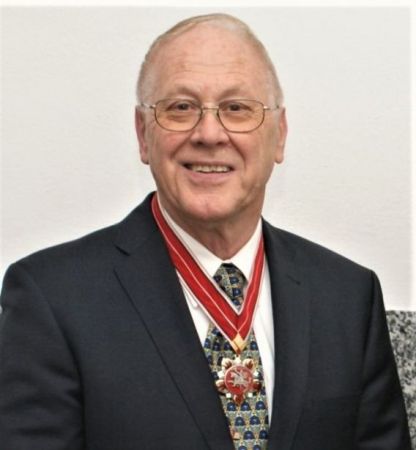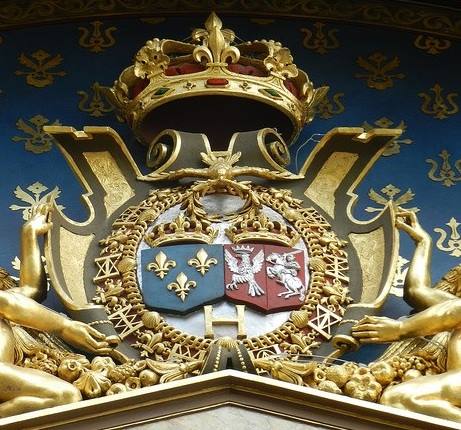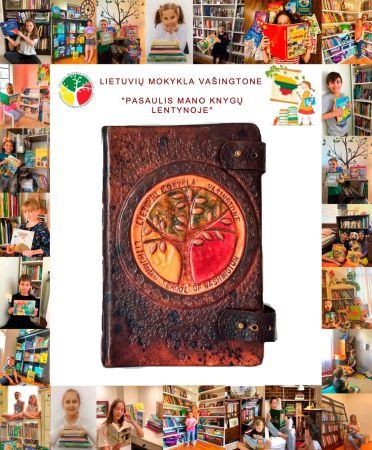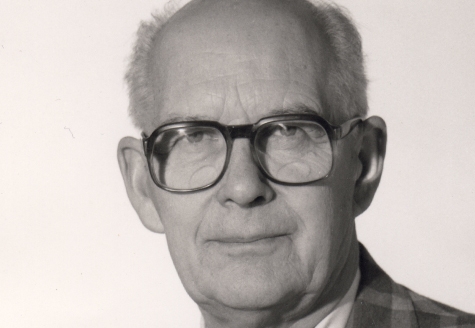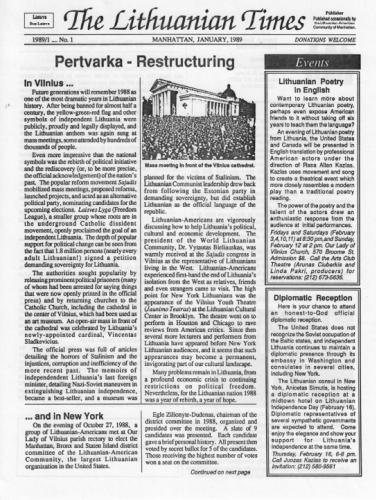
There were ten issues of The Lithuanian Times. Juozas Algimantas Kazlas founded the publication and edited the first 9 issues, from January 1989 to September 1991. Aukse Trojanas was the editor of the last issue, in September 1992.
The Lithuanian Times was intended primarily for New York and especially Manhattan Lithuanians, many of whom were young and middle-aged professionals who had arrived from other parts of the U.S. The title was a deliberate imitation of The New York Times, and the contents provided quick information to busy people in English with an occasional dash of humor. Each issue consisted of two sides of one sheet of paper of standard American size. In addition to making it a compact source of information, this format also made it easy to duplicate and to mail. Duplication was often done by Kazlas using a photocopy machine at work after hours, at the Shearson-Lehman financial corporation on Wall St., or in the office of a lawyer friend. With his wife, theatre director, actor and instructor Rasa Allan Kazlas, they would stuff several hundred copies of the newsletter into envelopes, attach stamps and mail them.
Continue reading “Getting Ready for the Exhibition “Lithuanian Diaspora Media after the 1990s”: The Lithuanian Times”